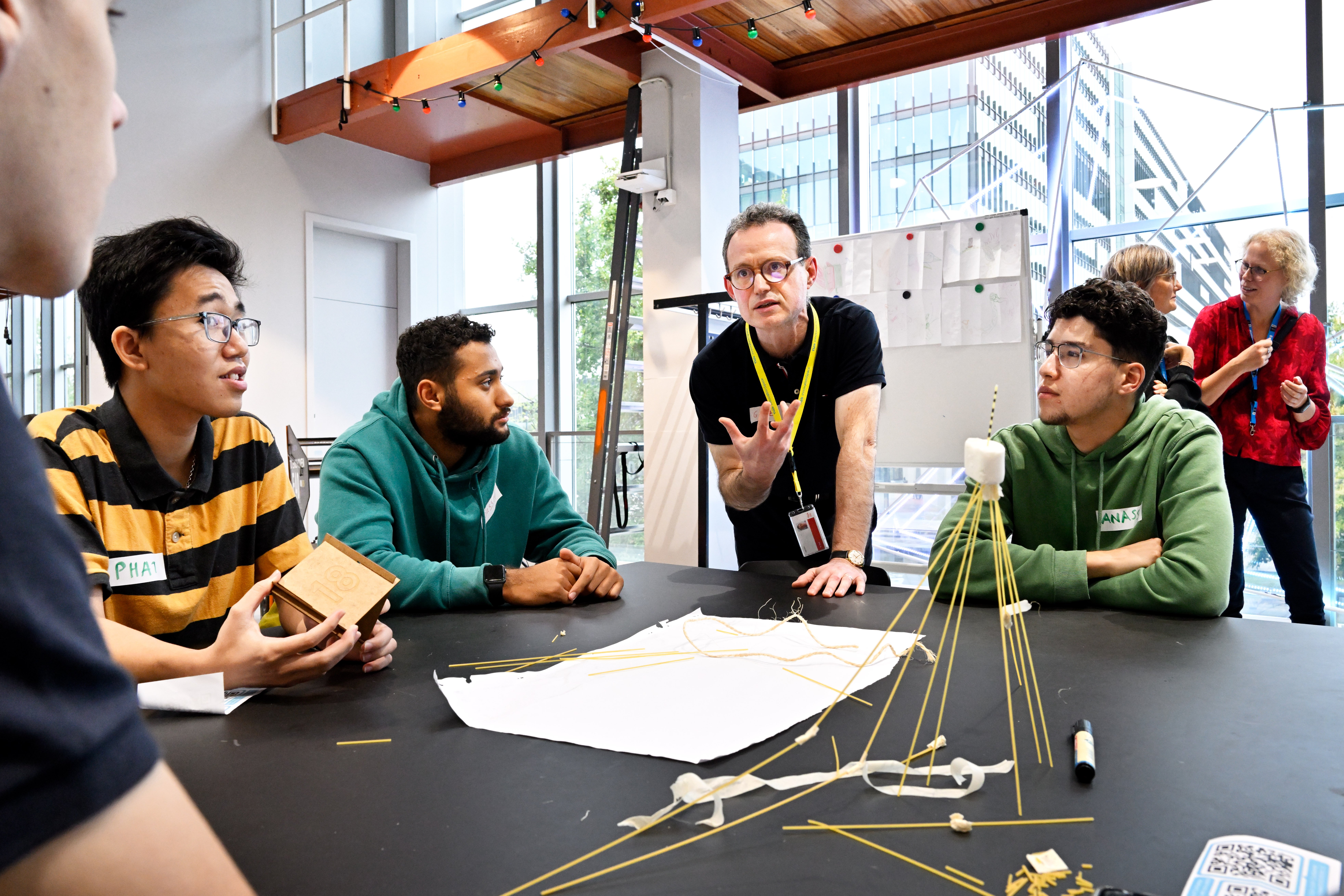
BETONIQ is a company that started its activities in 2011 in Eindhoven and has since then prefaced a whole range of infrastructural technology from Eindhoven. The products consist of various affordable and eco-friendly mass housing solutions. But BETONIQ doesn’t want to keep all this for the Netherlands, or the western world.
The shortage of adequate housing in Africa is an immense problem and nowhere this is more prevalent than in Nigeria. The founder of the BETONIQ Factories Ltd, Teun van Sambeek, was well aware of the housing challenges Africa is facing. “BETONIQ intends to fill the gulf in this sizeable market by building sizable factories, which are capable of large-scale production of houses and apartments, using precast concrete designs. These factories – when fully operational – are able to deliver up to 7,000 affordable units per year. The use of the precast concrete technique result in houses and apartments that are economic to build, incredibly durable in the harsh African conditions and at the same time are aesthetically pleasing to the eye,” he reiterates.
https://youtu.be/v74XO5MnRJM
The project’s impact
Adequate housing remains a major problem in African cities. There is a growing demand for African governments to house its population and provide durable infrastructure. African governments find it increasingly difficult to meet the demand of its people that simultaneous need provision of adequate housing and infrastructural development. For this demand, BETONIQ uses prefabricated concrete technology combined with solar- and water-purification technology. It is BETONIQ’s goal to transform suitable areas into trendy revitalized settings. BETONIQ will create eco-friendly environments of multiple eco-districts that consist of buildings that are environmentally friendly and that are energy and temperature-efficient, by using smart ventilation schemes and individual
solar energy techniques.
In this process, BETONIQ focusses on project development, manufacturing and assembly of affordable mass-housing in Sub-Saharan Africa and wants to excel in the areas of quality, safety, professionalism, innovation, and volume. “We have to improve the quality of life. We can’t just work with technology for technology’s sake,” Van Sambeek said. The company has taken a different approach in transferring its technology to Sub-Saharan Africa, compared to competing companies. Along the way, BETONIQ JV Nigeria Ltd. secured funding to build the first BETONIQ factory in Nigeria. BETONIQ’s interpretation of project development is all about home-owners and tenants becoming full sustainable and sees this eco-policy as a necessity for the well-being of the planet.
Strategy
The company is working to manufacture and deliver all elements for construction of houses and infrastructure to the volume up to 7,000 units annually per factory and employ and train up to 1,000 local people per factory. Its focus is to deliver a high-quality living space with parks, pools, children’s play grounds, sports facilities and becoming a leading brand in affordable housing. The housing solutions and models are developed in collaboration with many African specialists and are based on designs that had been used in various Sub-Saharan Africa countries before. These exemplary designs were redesigned to make them suitable for precast concrete production. By extensive financial calculating, the solutions were optimized to make them affordable by African standards. The factory that produces the concrete elements for these houses is also optimized for this task, also in order to get the highest quality for the lowest price. BETONIQ has implemented various innovations to achieve this. These innovations apply to smart solutions for door- and window frames, water treatment, solar energy and access to the internet.
According to Teun van Sambeek, the innovations make the real estate projects totally independent from a grid. This way developments can be realized anywhere and without the usual delays by the normally involved utility companies. “With our solutions, we tap into the virtually untouched $10,000-$50,000 house price bracket market. We know we can only transfer our innovations to Africa if we bring a quality design based on African housing demands with European quality standards at competitive prices. Another part of our concept is that each factory will finance a Technical Vocational Training Institute (TVT) that will be built next to each factory and will train workers for the factory, but will also train pupils in other important manufacturing sectors like agriculture, IT, automotive, (solar) energy and regular construction,” he adds. He also said that each BETONIQ company will be set up as an African company where shareholders are mainly local people combined with local government. This way profits will stay in Africa and profits are directly used to run the Technical Vocational Training Institutes. This approach ensures that the know how will be spread in Africa and will stay in Africa. BETONIQ expects that the factory will be operated by over 95% locally sourced and trained people.
The innovative housing solutions will enable people to be much more independent from the government regarding utilities such as electricity, potable water and internet. With this approach, Mr. van Sambeek believes his company will also create a maximal amount of local jobs and will grow the local economy in a sustainable way at the same time.
Why Africa?
“Within a few months BETONIQ expects to start the construction of their first precast concrete factory and by then it becomes clear if the BETONIQ innovation from Eindhoven helps Sub-Saharan Africa getting housed and trained in a durable, affordable, sustainable and – above all – massive way.
Mass housing based on precast concrete makes a lot of sense. To get to a professional rental and mortgage system in place in Africa, it is important to provide quality housing that last for at least 30 years without deteriorating. This can be best achieved by using precast concrete technology. Real mass housing is not possible in Europe due to urban planning restrictions and relatively low demands. “In Africa this is obviously different. Mass housing is well accepted in Sub-Saharan Africa because it solves urgent problems and another reason that makes Africa very suitable for our solutions is that the current infrastructure badly lacks quality”, Van Sambeek asserts.
https://youtu.be/e61_C-BEftQ








